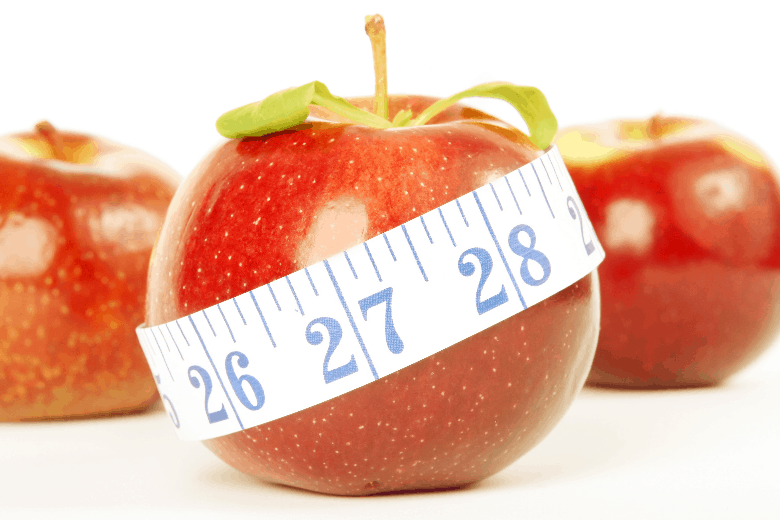Although modern medicine has achieved some amazing things, its progress has not come without cost.
In creating modern chemical medicines, humanity has become dependent on medicines that are just plain unnatural.
Of course, we are not telling you to throw out the contents of your medicine cabinet and never see your doctor again.
Instead, we hope to educate you about one of the better natural remedies that are out there. As you already know from the title, we are talking about apple cider vinegar.

What is Apple Cider Vinegar?
Apple cider vinegar is a substance that contains large amounts of acetic acid.
Humans discovered vinegar right around the same time that they learned how to make wine. This is because vinegar is basically just wine that sat idle for too long.
When you crush up some apples and add yeast, the fructose sugars in the fruit are acted upon by the yeast, producing fermentation.
First, the sugars are converted into alcohol. If the mixture is allowed to continue fermenting, it will become vinegar.
You can add sugar to speed up the process if desired.
Although no one knows for sure, it is likely that vinegar was first created by accident.
After making a bunch of vinegar on accident, it is natural that humans would seek to find a use for this substance.
Over the last three millennia, we have indeed found many uses for vinegar.
How do you use Apple Cider Vinegar?
There are many ways to use apple cider vinegar. The most common way is to add the vinegar to your food, either before or after cooking.
Foods that are cooked in this substance will absorb many of its health benefits.
Of course, you could just go with the old Samurai method. Ancient Japanese warriors would often drink flavored vinegar in the belief that it would grant strength and longevity.
Since apple cider vinegar is already flavored, you just drink it straight. To this day, many Japanese still drink a shot of vinegar with breakfast.
Vinegar can also be used externally for certain things.
As far back as 400 BC, the Greek physician Hippocrates used apple cider vinegar to treat wounds and aid healing. Ancient Chinese physicians used it to prevent infection, as well.
Your method of using apple cider vinegar isn’t as important as the dosage. It is true that too much apple cider vinegar can be bad for you.
Vinegar is a fairly strong acid.
So strong that it can be used to clean steel parts! This is why you cannot drink too much at once.
Because of its acidic properties, vinegar can damage your teeth if used improperly.
If you choose to drink your vinegar straight, rinse your mouth with water afterward so that the acid won’t stick around and continue eating into your teeth.
Your correct dosage will mostly depend on your primary purpose in drinking this stuff. Here is a quick guide that should give you a better idea of standard dosages.
What you will quickly see is that there is no standard dosage.
The best thing for most purposes is to drink 15-30 ml (1-2 teaspoons) per day. This should be enough to obtain any of the benefits that come from this supplement.
However, larger dosages may be needed for those who require or desire more drastic results.
A good rule of thumb is to start at the minimum dosage and gradually increase until a good level is reached.
For those who are trying to manage their blood sugar, a dosage of four teaspoons a day is considered to be pretty normal.
Obviously, you should cut it back if you begin to notice any ill effects.
What are the Benefits?
The uses of vinegar are numerous, but we will focus on the health benefits that come from regular ingestion of this particular type of vinegar.
Let’s go over these benefits one at a time.
Antibacterial Properties
One of the most common uses of vinegar is disinfection.
People have long believed that vinegar has a certain cleaning effect, although science wasn’t able to fully explain this property until fairly recent times.
There is some pretty solid evidence to show that vinegar does hinder the growth of many microorganisms.
As we can see from this study, E.Coli and a number of other harmful bacteria showed significant reduction after being treated with vinegar.
This substance has also proven to be effective in the management of Staphylococcus and Candida.
It is a wonder that doctors don’t use this remedy more often! The best part of this whole process is that vinegar does not act as an antibiotic.
Rather than killing the virus/bacteria outright, as an antibiotic would do, vinegar inhibits its growth and prevents it from spreading.
This allows the body to respond appropriately and destroy the infection through natural means.
Why is this such a good thing?
Because antibiotics have one major problem associated with their use: The fact that viruses and other microbes will gradually become stronger and more dangerous in response to the antibiotic.
Eventually, the diseases can even become immune to antibiotics, and that’s when the situation really gets bad.
Antioxidant Properties
Vinegar contains a fairly good dose of antioxidant substances.
This is good because antioxidants play a major role in the prevention of cell damage. The anti-aging benefits of antioxidants have been studied in particular detail.
There is also evidence to suggest that antioxidants can reduce your risk of certain diseases, but there seems to be little evidence to support this claim.
This is probably because the subject just hasn’t been studied enough.
Most of the antioxidant content in vinegar comes from the fruit of which the vinegar is made.
Apples contain high levels of various antioxidants, and the figures seem to show that relatively little is lost when the fruit juice is converted to its new form.

Lowered Blood Sugar
This is probably the most well-proven benefit of Apple Cider Vinegar (ACV).
There is so much research on this one that no one in their right mind could deny the effectiveness of this medicine.
Even among researchers who remain skeptical about some of ACV’s benefits, there is a universal agreement that ingestion of ACV will reduce the body’s glucose response to a large dose of carbohydrates.
Ordinarily, the body will respond to a carbohydrate-rich meal by converting most of the carbs into blood sugar.
By taking vinegar just before eating, this glucose-producing response can be suppressed.
But how does it work?
The answer is actually very simple.
Acetic acid (the active component of vinegar) slows the rate of digestion, causing the food in your stomach to enter the intestines at a slower and more gradual rate.
This means that the sugars produced by the breakdown of the food are introduced in small increments rather than being dumped into the bloodstream all-at-once.
Reduced Appetite
For many years, a small number of advocates have touted the weight-loss benefits of ACV.
For many years, science was unable to substantiate these claims, and many in the mainstream dismissed the idea.
However, it turns out that the researchers were looking in the wrong place.
ACV does not directly cause weight loss, but it can indirectly cause weight loss by acting as an appetite suppressant.
Drinking a little bit of vinegar with a meal has been shown to bring about an increased feeling of fullness.
The result is that you won’t feel the need to eat again for a while.
If you want some more specific data, take a look at this study. Japanese researchers tested the effects of vinegar supplementation on a number of obese test subjects.
Some of them were given 1 tsp of vinegar while others were given 2 teaspoons, and a third group was given none at all.
By the time it was over, they had found that all of the test subjects who had been given the vinegar experienced very positive results.
Body weight, BMI (body mass index), and waist circumference were all reduced by a greater margin than the control (no-vinegar) group.
This is very clear proof for the use of vinegar as an appetite suppressor.
Lowered Risk Of Heart Disease
Heart disease is one of the biggest killers on earth. The term “heart disease” encompasses a large number of different maladies ranging from atherosclerosis to coronary artery disease.
However, most of these problems are caused by the same things.
No one seems to know why, but vinegar seems to reduce the risk of heart disease.
There is very little research on this matter that has been done on human subjects. However, we were able to locate this one.
The research proved that women who ate vinegar-based dressing on their salad were less likely to develop various forms of heart disease.
To be fair, researchers did not attribute this benefit to the vinegar. The women in the study used an oil and vinegar dressing that contained high levels of alpha-linolenic acid.
As vinegar itself is not a source of alpha-linolenic acid, this benefit would have come from the soybean oil.
It seems more likely that the researchers simply made a mistake and failed to consider the long history of vinegar as a health supplement.
We say this because studies conducted on animals have repeatedly shown decreases in cholesterol and blood pressure after being given daily doses of ACV.
When we take this evidence together, it seems clear that ACV will reduce the risk of heart disease by at least some degree.
While there seems to be some variation in terms of the degree of difference attained, all the evidence points toward ACV as an underappreciated heart medicine.
Lowered Risk Of Cancer
It’s an old joke to say that everything causes cancer.
However, the joke is not really that far-fetched, because of the fact that there are a huge number of things that can cause this disease.
Thankfully, ACV is in the opposite category. It inhibits the growth of cancers and can even cause tumors to shrink over time.
This study took a look at several traditional types of vinegar with an eye toward determining how well each one fights cancer.
Their study included various types of vinegar from all over the world, but all of them were found to have similar anti-cancer properties.
Based on this study, we can say that the benefits for all types of traditionally-made vinegar are about the same.
The differences between the various types of vinegar (in terms of their results) were generally quite small.
Numerous other studies have also confirmed these findings. For instance, these researchers tested Japanese rice vinegar on cancerous mice.
They found that, before long, the mice had experienced a reduction in the size and inflammation of their tumors, and their lifespans were significantly prolonged as a result.
If you need more proof, here is a little bit more. Researchers, in this case, were able to prove that vinegar prevents cancer cells from growing.
No one seems to understand the exact mechanism by which this process works, but it seems to have something to do with vinegar’s ability to dissolve in fat (technically called lipophilia).
Concerns and Precautions
As we mentioned earlier, it is possible to overdo it when dosing yourself with straight vinegar.
Most of the problems come from the highly acidic nature of this substance, but there is more to the story than that.
As we explained earlier, vinegar helps to control blood sugar by slowing the rate at which food leaves the stomach.
However, this can be a problem for some individuals with type 1 diabetes.
Diabetics of this type will often have a problem with gastroparesis, a condition in which the nerves of the stomach begin to lose some of their ability to function.
The result is a situation where food stays in the stomach for longer than it should.
Clearly, anyone who is having this problem should avoid using vinegar as a supplement since it will likely cause the problem to become even worse.
We already mentioned that vinegar could act as an appetite suppressor. However, this process can cause some mild digestive upset if you drink too much.
In this series of tests, subjects who drank vinegar reported feelings of nausea after drinking a little too much vinegar.
So, the rule of thumb here becomes quite simple: If you start to feel nauseous, you’ve had too much. Kind of like alcohol, huh?
If you have been reading carefully and following the links, you will already be aware that vinegar has a corrosive effect that makes it useful for metal cleaning purposes.
As such, it should come as no surprise that straight vinegar has a deleterious effect on your teeth.
These dental side effects are the reason that most experts recommend that you dilute your vinegar with water or some other beverage rather than drinking it straight.
You shouldn’t need proof for this, but here is a little bit for those of you who insist on being completely thorough.
There are also some medications that might not mix well with ACV. These include insulin, medications that stimulate the production of insulin, Digoxin, and certain diuretic drugs.
Combining vinegar with insulin (or with medications designed to stimulate insulin production) can cause your blood sugar to drop sharply, to a point that it becomes a danger.
There is a single case in which potassium deficiency was attributed to regular (and excessive) dosing of vinegar.
Digoxin and certain diuretic drugs are known to lower the body’s potassium levels, which means that you probably shouldn’t combine them with regular doses of ACV.
The potassium factor is not a particularly important one, because it is based only on a single case in which other factors may have been involved.
Still, it isn’t something that you should overlook when making your plans.
In case you’re wondering just how much they took, this woman was taking 8 oz (250 ml) per day for a period of six years.
That’s quite a bit more than a person would normally use!
Summary
It is amazing to consider just how long people have been using vinegar as a medicine, and how well-proven some of its benefits are.
Most alternative therapies come off as being a little bit sketchy, but this one comes off as being completely legit.
Let’s recap a short list of the proven health benefits of this substance:
- Antibacterial effects
- Antioxidant properties
- Appetite suppressor
- Helps to control blood sugar
- Lower risk of heart disease
- Lower risk of cancer
With all the research out there, it is possible that there are even more benefits than these.
With roots going back to ancient Mesopotamiam civilizations, vinegar could be described as one of humanity’s oldest medicines.




